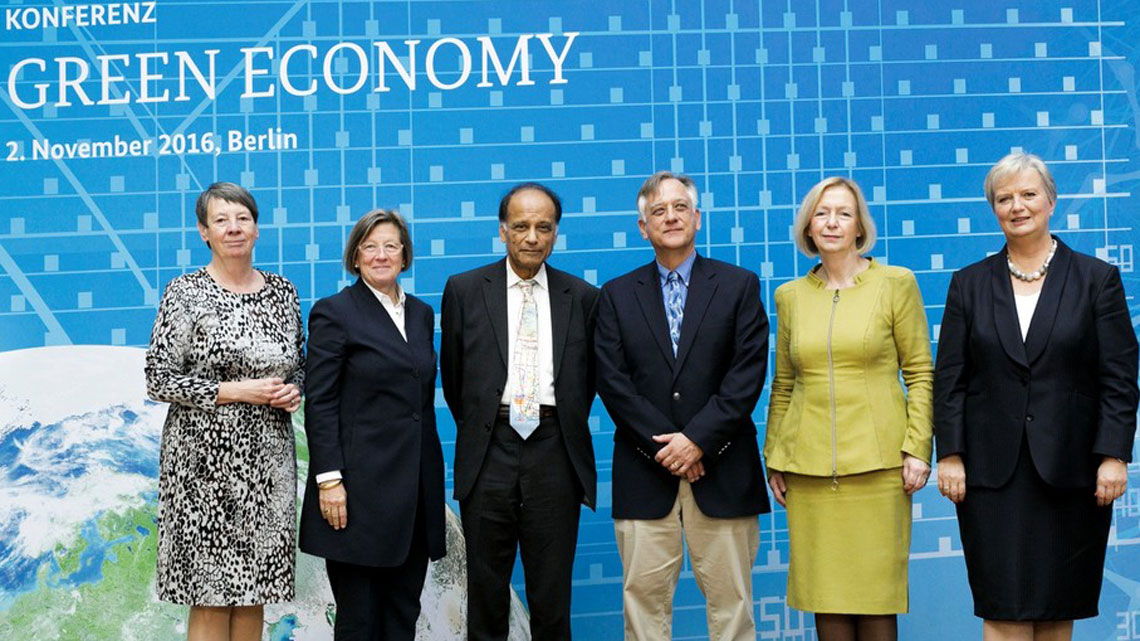Driving sustainable economics
How can sustainable economic activity in Germany be encouraged? A German government advisory committee presented recommendations at the Green Economy Conference in Berlin.

With its 'high-tech strategy', the German government has paved the way for more sustainable economic activities. But how can the topic of sustainability be anchored more firmly in Germany whilst at the same time strengthening the country’s position as an innovation and technology hub? This is the question that the 'Sustainable Management' ('Nachhaltiges Wirtschaften') Expert Forum, part of the German government's Hightech Forum advisory group, has put at the top of its agenda. Their recommendations were presented to Research Minister Johanna Wanka and Environment Minister Barbara Hendricks during the Green Economy Conference held in early November in Berlin. Their ministries had provided support for the preparation of the paper.
Designing sustainability
During the conference, over 300 experts from business, science, society and politics discussed ways of orienting economic activities and innovation systems towards a sustainable form of management.
The experts determined five central recommendations for action: German research and innovation must be aligned with global UN sustainability goals. The area of sustainability must be made competitive and evaluable. The state must adopt an exemplary role in this area, both in its internal activities (sustainable orientation of the administration) and in its external influence (via control instruments). In addition, the topic should be disseminated at an early stage in educational establishments with a view to engendering competence regarding research and innovation. Also, social dialogue must be promoted, with the realms of science, economics, politics and civil society exchanging their views on equal terms.
Expediting biomass research
The 47-page paper includes implementation examples from the chemical and foodstuffs industries as well as the financial sector to show how this can be achieved. Thus the authors recommend that companies using non-renewable resources should always bear the entire value chain in mind. Furthermore, research is seen as a driver that increasingly enables fossil raw materials to be replaced by sustainably generated biomass. The research agenda also includes recommendations to tap new sources of carbon for industrial use as well as the oceans as new sources of food and raw materials.
"Sustainability does not represent a contradiction in respect of economic growth, but it can take the form of a competitive advantage," as Johanna Wanka emphasized at the congress in her opening speech. However, this would require powerful impulses from the research sector and a broadly based consensus in support of Green Economy. Wanka announced her intention to inaugurate a new scientific platform before the end of the year with the aim of enabling more sustainable innovation through closer cooperation. "This platform will help to forge new alliances and locate new partners for sustainable management," said the minister. The Ministry for Education and Research will be providing a total of 350 million euros for sustainability research by 2018.
Environment Minister Hendricks also pointed out in Berlin that structural change would only be possible in a concerted effort and that here, too, sustainability in financial dealings is necessary. "Sustainable investment options must come out of their niches and take over the mass market," demanded Hendricks.


